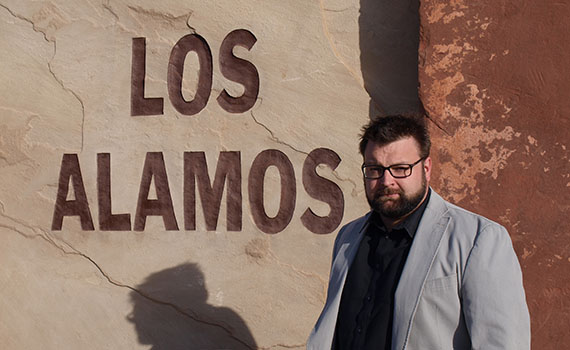Jason Keith, assistant professor of chemistry, and a team of scientists have made a discovery in chemical bonding that is drawing attention in the science community.
In November, Chemistry World, a publication of the Royal Society of Chemistry, Europe’s largest organization for advancing the chemical sciences, published a story on a project that showed actinides, a series of metallic chemical elements, can form phi bonds.
“A greater understanding of the bonds involving these elements can lead to the reduction of waste that results from nuclear energy production. While this result on its own does not do this, it is part of a greater effort with this as the ultimate goal.”
Nuclear waste contains actinides. And actinides have a significant role in the long lifetime of nuclear waste, Keith said.
As one of nine co-authors on the report, Keith said he performed all of the calculations for the theoretical work. The team was made of scientists and supervisors who worked on either the theory or experimental side of the project.
The work was performed at Los Alamos National Laboratory (LANL) in New Mexico, where Keith was a postdoctoral fellow, and Lawrence Berkeley National Laboratory in California, from 2010 to 2013, and used advanced x-ray techniques.
“Since coming to Colgate in July, I have continued an active collaboration with my colleagues from LANL and we are continuing to examine bonding in compounds of f-block elements (lanthanides and actinides),” he said. “Specifically, we are proponents of the idea that actinides form covalent bonds. Previously actinide complexes were thought to be ionic in nature much like their lanthanide counterparts. Our work has and continues to shape the fundamental understanding of the electronic structure in these complexes.”
Once the story in Chemical World was published, another publication, Chemical & Engineering News, contacted LANL about running a story, Keith said.
The project has led to seven publications and took up about 75 percent of his time at LANL, where he is now a visiting professor, Keith said.
According to the Chemistry World article, the team’s next task is to discover bonding in a more complex actinide.
Keith, a proponent of alternative energy and the environment, said his continued interaction with LANL will potentially provide new opportunities for Colgate students, such as summer research fellowships and exposure to state-of-the art science that cannot be done at a university.
